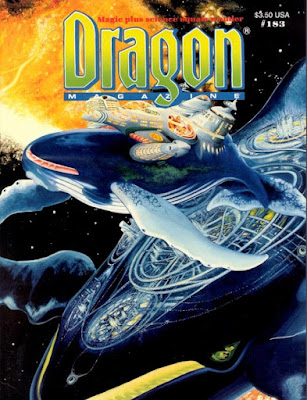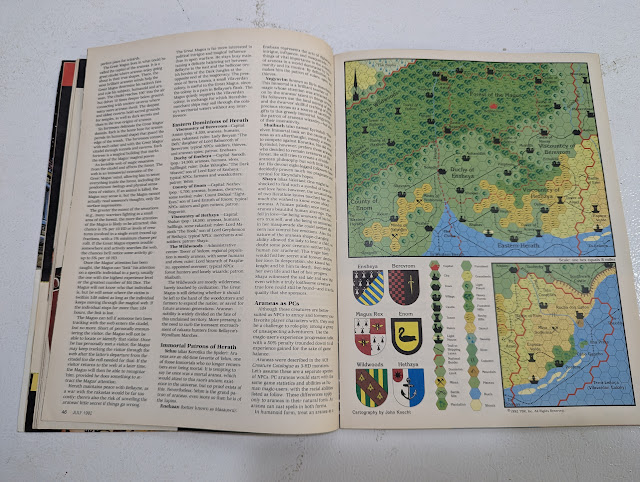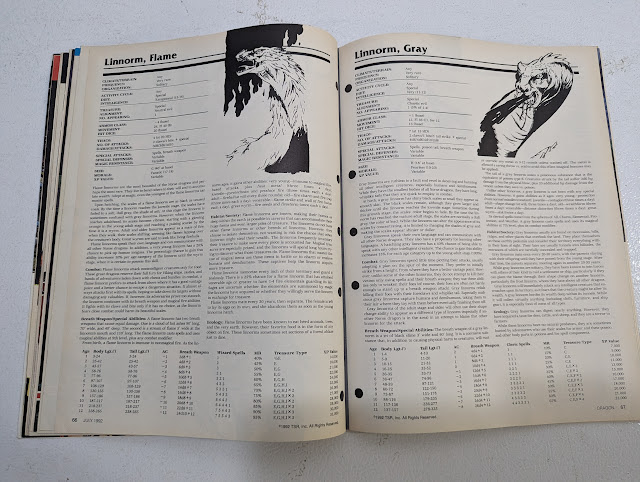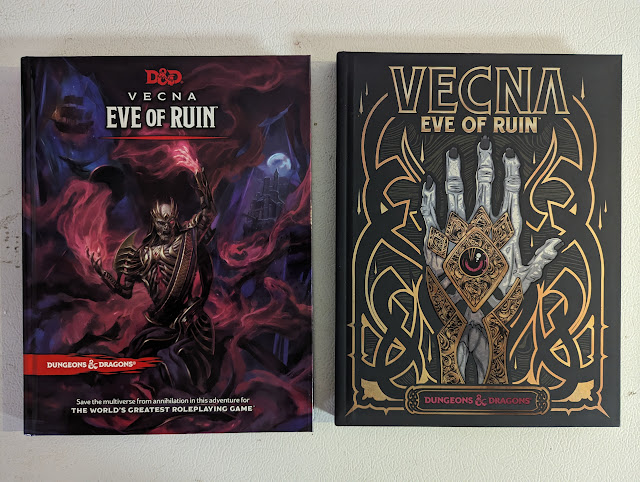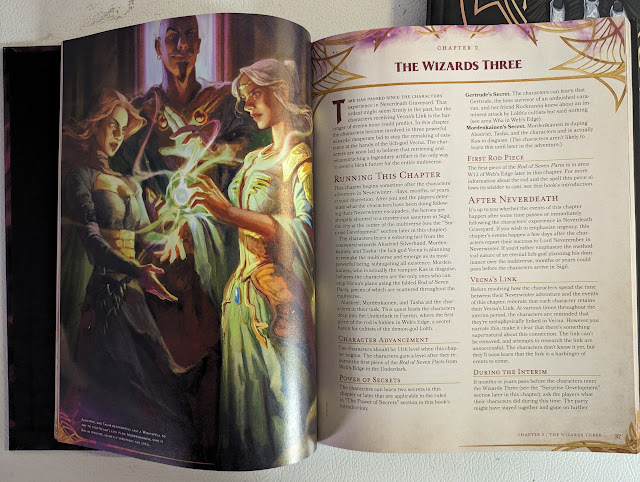Since I am focusing this year on the 50th Anniversary of Dungeons & Dragons, it is only fitting that I spend so much time with its sister game, Gamma World. There are currently seven editions of Gamma World, all following the same general theme: It is the 25th Century, and the Earth has been nearly destroyed by some global cataclysm. The nature of this cataclysm and the amount of humanity that survived changes from edition to edition.
All editions of Gamma World are credited to James M. Ward and Gary Jaquet. It was based on Ward's earlier sci-fi game, Metamorphosis Alpha. MA would give us Gamma World and the AD&D adventure Expedition to the Barrier Peaks.
The remnants of humanity and other beings now struggle to survive in a harsh and mutated world filled with bizarre creatures, dangerous mutants, and remnants of advanced technology.
Like Dungeons & Dragons, players take on the roles of adventurers exploring this radioactive wasteland. They can choose from various mutant characters with unique abilities, ranging from humanoid animals and plant people to cyborgs and psychic mutants.
Characters adventure in abandoned, destroyed cities, looking for the remains of civilization or something to survive in the wasteland.
In many, many ways, Gamma World IS Dungeons & Dragons. There is no magic, but there are high-tech, weird radiation and psychic powers. Making Gamma World into a D&D world is not a stretch. The 1st and 2nd edition rules are similar enough to Basic-era and AD&D 1st editions to make translations easy. In fact, the 1st edition of the AD&D Dungeon Master's Guide has conversion guidelines. Gamma World 4th edition is also very close to AD&D 2nd edition to make translations there east too. Dragon Magazine #183 has a conversion guideline for Gamma Word 4th edition and AD&D 2nd edition.
I reviewed this one in detail a while back. It is also the one I am most familiar with.
This was one of the more popular versions of the game, coming out at the height of classic D&D's popularity. While I mentioned it is compatible with AD&D 1st edition, it has more in common with the Red Box D&D Basic that came out around the same time. It even came with the same sort of dice as the Basic sets. Considering that GW1 most closely resembles the Moldvay Basic set, this is not a surprise.
Gamma World 2nd edition is compatible with GW 1st edition, and is generally the same rules expanded and cleared up. Even the adventures and products for this game kept the same numbering codes from 1st edition.
This edition is expanded over GW1 and includes an introductory adventure. There are few more "monsters" in this one as well, but I'd need to set them side by side to figure out which ones are new.
Third Edition (1986)This version of Gamma World also expands on the earlier editions. Notable setting changes include doubling the number of humans that died in the apocalypse and the rules have changed. While characters are still generated the same way and all the stat blocks look similar there is an addition of an "Action Table" for rolling outcomes. The feel is similar to what we see in 1st Edition Chill from Pacesetter and TSR's own Marvel Super Heroes RPG's FASERIP system. The system requires only a d6 and a d10. There are notes on how to use to generate other types of dice rolls.
Unlike GW1 and GW2, this version was not as out of the box compatible with D&D to the same degree the others were. Characters, as did the monsters, still looked very similar, but the system was different enough to increase the incompatibility.
The idea here was to streamline the game and make the action faster. Sadly, several errors in the game made this difficult. It did feature one of the first meta-plot arcs for Gamma World, but sadly was not finished in print.
Fourth Edition (1992)
This edition of the game brought it back to its roots, so to speak. It is very compatible with the then-current AD&D 2nd Edition. There are some very interesting design choices here too including a good skill system and a very d20 like combat resolution system with "Ascending" armor classes. In some ways you could adapt this to AD&D for a near AD&D 2.5 edition that shows a good transition between AD&D 2nd ed and what will become D&D 3rd edition, but that is 8 years and a different company in the future.
Interestingly, this edition was also playtested over the GEnie BBS service way back before the internet became ubiquitous.
The art in this edition features some of the best art from the "Four Horsemen of TSR," Jeff Easley, Clyde Caldwell, Larry Elmore, and Keith Parkinson.
Sadly, this was to be the last version of Gamma World to be produced by TSR. They announced they were going to switch gears and do a new version of Metamorphosis Alpha for their new Amazing Engine game line.
The Fifth Edition, while published under the TSR name was really a Wizards of the Coast product and I'll discuss that one tomorrow.
Which one should you get?
All things being equal, I would go for the 4th edition rules myself. The 1st and 2nd have a great nostalgia factor for me, and while I have the 1st Edition, I likely go with the 2nd.
The 1st, 3rd, and 4th edition rules are all available as Print on Demand versions now. So that is also in their favor. I understand the 4th edition rules are very clean and a good print. I can vouch for the 1st edition rules myself. The 3rd has some issues, but I am also not a fan of the action table, so I am giving it a pass.

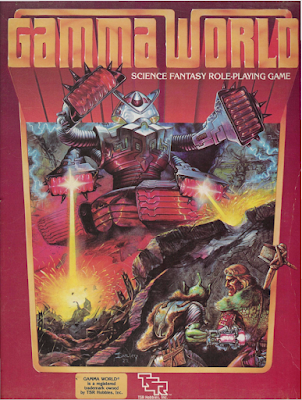
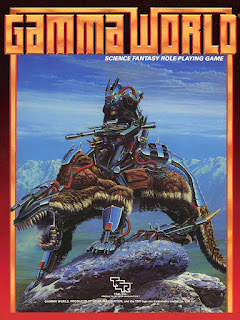
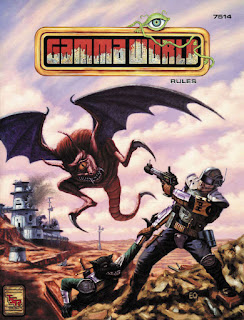

.jpg)


